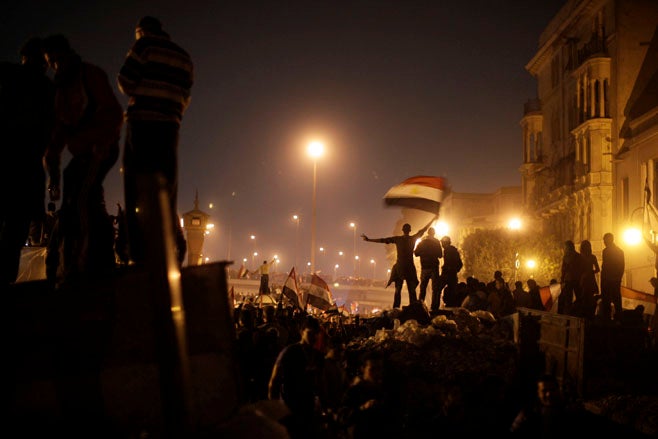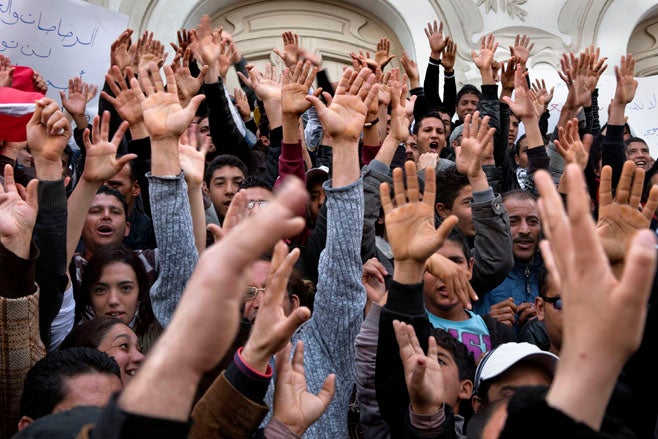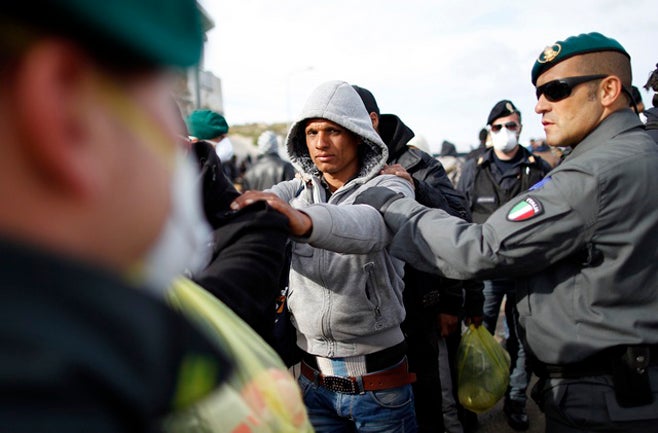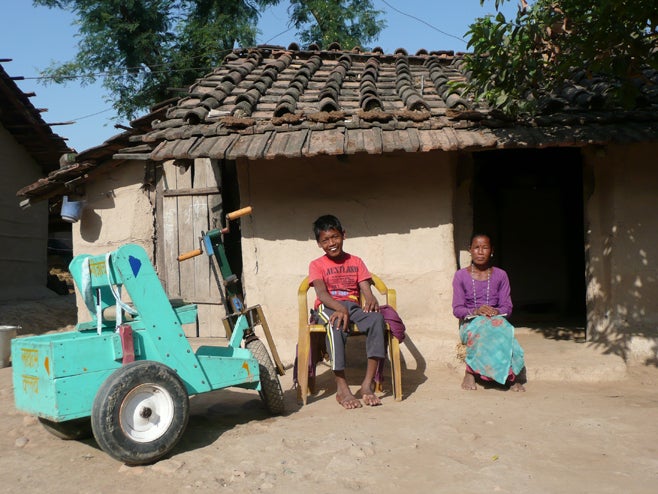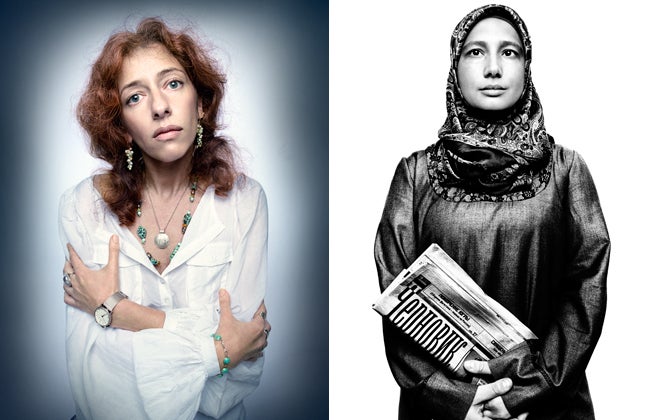Zimbabwe’s inclusive government has made significant progress in improving the country’s economic situation and reversing the decline of the past decade. For example, Zimbabwe has seen a marked improvement in its health system. However, despite a decline in HIV prevalence over the past decade and adoption of new guidelines on treatment in 2011, the number of HIV-positive Zimbabweans requiring but not receiving treatment remained high. Huge challenges also remain on the political front, with elections a key point of contention within the Government of National Unity (GNU).
The two main parties to the GNU, the Zimbabwe African National Union-Patriotic Front (ZANU-PF) and the Movement for Democratic Change (MDC), differ sharply over when elections should be held and the role of the security forces, often seen as staunch allies of President Robert Mugabe and ZANU-PF. ZANU-PF insists that the environment in the country is conducive to the holding of free, fair, and credible elections while the MDC contends that elections should not take place in the absence of human rights and electoral reforms. Questions also remain over the independence of key institutions that are vital to the proper implementation of free and fair elections, such as the electoral commission and the judiciary.
Mugabe’s announcement in December 2010 that elections would be held in 2011 triggered an increase in violence and abuses across the country. The beginning of the year saw ZANU-PF and elements within the security forces resort to old campaign tactics of violence, intimidation, and harassment. State security agents, police, and ZANU-PF supporters have been implicated in beatings, arbitrary arrests, and harassment of members of the MDC, cabinet ministers, human rights activists, and journalists, deepening the pervasive climate of fear in the country. In reaction to the abuses, Prime Minister Morgan Tsvangirai threatened to withdraw the MDC from the inclusive government in March.
Political Violence
After a period of relative calm, 2011 saw an increase in politically motivated violence across the country. Tensions flared between the ZANU-PF and the MDC as a result of the anticipated elections. The main perpetrators of the violence have been ZANU-PF supporters and youth who have attacked scores of people, mainly MDC supporters and members, in the high-density neighborhoods of Harare, the capital, as well as outside of Harare. Over several days of violence in early February, scores of MDC supporters were injured and some were hospitalized as a result of attacks by alleged ZANU-PF youth in Mbare.
Police and prosecutors have been highly partisan and biased in their investigations and prosecution of acts of violence between supporters of the two parties. Groups allied to ZANU-PF continue to beat and intimidate citizens in the high-density suburbs of Harare with impunity, while MDC activists accused of violence are disproportionately arrested. In March police raided the MDC party headquarters and arrested three MDC officials and seven MDC youth on assault charges. Three days later they were all released. Several MDC parliamentarians and officials are facing various criminal charges, including inciting and participating in violence. In contrast, there have been few arrests or charges laid against ZANU-PF supporters implicated in violence.
Human Rights Defenders
The Zimbabwean authorities continue to use repression and intimidation to silence human rights advocates and to prevent them from exposing abuses and promoting respect for human rights. Harassment and arbitrary arrests of human rights defenders have intensified since January 2011. For example, on February 8, police arrested two employees of the Zimbabwe Human Rights NGO Forum as they tried to conduct a survey on transitional justice. In the same period police also raided the offices of a number of human rights NGOs and questioned the employees.
On May 23, police in Matabeleland North arrested two activists from the human rights organization ZimRights for convening a workshop on torture and its effects. Lawyers were denied access to the activists for three days before they were released.
Freedom of Association and Assembly
Minimal changes to repressive laws such as the Public Order and Security Act (POSA) and the Access to Information and Protection of Privacy Act (AIPPA) have failed to open up space for the political opposition and civil society. ZANU-PF continues to selectively apply these laws and others, such as the Criminal Law (Codification and Reform) Act, to justify arrests that violate basic rights and systematically deny civil society activists the right to peacefully assemble and associate. The police use provisions of POSA to strictly monitor and prevent public meetings or disrupt peaceful demonstrations.
On September 21, police arrested 12 activists from the organization Women of Zimbabwe Arise (WOZA) during a peaceful march commemorating the international day of peace. Ten of the activists were released without charge but two leaders of the organization, Jenni Williams and Magodonga Mahlangu, spent 13 days in custody.
On February 19, police arrested 45 activists who were meeting in Harare to discuss events in the Middle East. Six of the activists spent three weeks in custody before they were released on bail, initially charged with treason and attempting to overthrow the government by unconstitutional means. On September 14 the trial of the activists began in Harare, but the charges were revised to allegedly conspiring to commit public violence and participating in a gathering with intent to promote public violence.
The office of the attorney general has often been accused of a strong partisan bias toward ZANU-PF and of using criminal laws to prevent peaceful political activism. Prosecutors routinely invoke section 121 of the Criminal Procedure and Evidence Act to deny bail to political and civil society activists despite judicial rulings granting them bail, thus nullifying judicial checks on the excesses of the executive.
Freedom of Expression
There continue to be serious limits on the rights to freedom of expression and information in Zimbabwe, particularly in the form of threats of closure of independent media organizations, as well as the intimidation, arbitrary arrest, and criminal prosecution of journalists. The government’s actions seem primarily designed to inhibit criticism of government officials and institutions, and to muzzle reporting and commentary on the political situation in the country.
While the government has allowed independent local daily papers to resume operations, it has not fully reformed media-related laws as promised. It has also not reviewed criminal defamation laws that impose severe penalties, including prison terms, on journalists. Media laws such as AIPPA give the Zimbabwe authorities discretionary control over which individuals may practice journalism and operate a media outlet, as well as broad powers to prosecute persons critical of the government. Laws such as AIPPA and POSA continue to be selectively used to restrict the media. Journalists and media practitioners routinely face arrest for allegedly violating the state’s repressive media laws. Journalists and media outlets have also been subjected to threats and harassment from the authorities and security forces, creating major obstacles to reporting on Zimbabwe’s political system and continuing abuses by ZANU-PF.
Human Rights Violations in Marange Diamond Fields
While violence has decreased in the Marange diamond fields over the past year, Human Rights Watch research in June found that Zimbabwe police and private security guards employed by mining companies in the Marange diamond fields were implicated in abuses against local unlicensed miners. Private security guards working with the police routinely beat and set dogs to attack and maul local miners who stray into areas of the fields controlled by the companies. During patrols, police also fired live ammunition at miners as they fled the fields.
These findings contradict claims by the Zimbabwe government and some members of the international diamond monitoring body, the Kimberley Process, that areas controlled by private mining companies are relatively free of abuses and that diamonds from these companies should be certified and allowed on to international markets. The violence followed claims in June by the government and the chairman of the Kimberley Process, Mathieu Yamba, that conditions in the Marange fields are sufficient for it to be allowed to resume exports of diamonds.
Key International Actors
Leaders of the Southern African Development Community (SADC) grew increasingly frustrated with the slow pace of political and human rights reforms in Zimbabwe, in particular ZANU-PF’s reluctance to implement key parts of the Global Political Agreement (GPA), which paved the way for the formation of the GNU. Throughout the year SADC and South African President Jacob Zuma, appointed by SADC to facilitate reforms, exerted concerted pressure on the GNU to increase the pace of reforms and to adhere to a SADC-drafted electoral road map that would lead to free, fair, and credible elections.
At an extraordinary meeting held in Zambia in March, President Zuma reported back to SADC leaders on the situation in Zimbabwe. The report highlighted concerns about widespread human rights violations, including violent attacks on MDC supporters and arbitrary arrests. SADC issued a strong communiqué in support, demanding an end to political violence and arbitrary arrests and calling for an expanded facilitation team to engage with the GNU. ZANU-PF’s response to the communiqué was highly critical of Zuma’s facilitation, publicly accusing SADC of interfering in the country’s sovereignty and its right to hold elections at a time of its choosing. Subsequent communiqués issued by SADC at an extraordinary meeting in June and at its annual summit in August called for greater progress in the implementation of the GPA and the creation of a conducive environment to hold free and fair elections “under conditions of a level playing field.”
SADC and Zuma’s more robust engagement has led to progress in implementing certain parts of the GPA, including the formation of the electoral road map, finalizing the constitution making process, appointing a new election commission, and the introduction of the Zimbabwe Human Rights Commission Bill and the Electoral Amendment Bill. Zuma and his facilitation team’s insistence that the environment in the country was not conducive to the holding of free and fair elections forced Mugabe and ZANU-PF to relent on holding the elections in 2011. Meanwhile SADC has been unable to make any gains on important issues such as security sector reform, accountability for past abuses, and ending politically motivated violence and other human rights abuses.
The United Nations Human Rights Council’s first Universal Periodic Review of Zimbabwe took place in October 2011. Zimbabwe rebuffed at the outset all recommendations pertaining to investigating allegations of violations, combating impunity, and bolstering protection in the Marange region, and related to freedoms of assembly and expression, including repealing or amending the POSA.
Due to the absence of meaningful human rights improvements, the European Union and United States have maintained targeted sanctions on Mugabe and others within his government.
